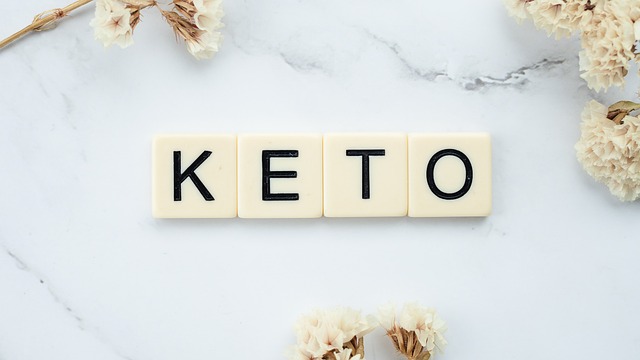Have you ever wondered about the effects of a keto diet on your cholesterol levels? It’s a topic that has been the subject of much debate and discussion. You may have heard that the keto diet, which is high in fats and low in carbohydrates, can have an impact on your cholesterol levels. But is this true? In this article, we will delve into the details and help you understand the relationship between the keto diet and cholesterol.
The keto diet has gained popularity as a weight loss and health improvement method. By drastically reducing your carbohydrate intake and increasing your consumption of healthy fats, your body enters a state of ketosis, where it burns fat for fuel instead of glucose. While research suggests that the keto diet can be effective for weight loss and improving insulin sensitivity, its effect on cholesterol levels is a point of concern for many.
Many individuals worry that the increased consumption of fats on a keto diet will elevate their cholesterol levels and negatively impact their heart health. However, several studies have shown that the keto diet can actually lead to beneficial changes in cholesterol levels. In fact, it may help raise the levels of high-density lipoprotein (HDL) cholesterol, which is known as the “good” cholesterol, while reducing levels of low-density lipoprotein (LDL) cholesterol, often referred to as the “bad” cholesterol.
So, if you’re curious to learn more about the effects of a keto diet on cholesterol levels, read on. We’ll discuss the research and provide you with a comprehensive understanding of this topic.

Introduction to the Keto Diet
What is the keto diet?
The keto diet, also known as the ketogenic diet, is a low-carbohydrate and high-fat eating plan that has gained popularity in recent years. It is designed to induce a state of ketosis in the body, where it switches from using carbohydrates as the primary source of energy to using fats. By significantly reducing carbohydrate intake and increasing fat consumption, the body is forced to burn fat for fuel, leading to weight loss and various health benefits.
How does the keto diet work?
The main principle behind the keto diet is to reduce the intake of carbohydrates to such an extent that the body enters a state of ketosis. When carbohydrate intake is restricted, the liver starts producing ketones from stored fat, which then become the primary source of energy for the body. This shift in fuel source not only promotes weight loss but also offers a range of potential health benefits.
Benefits of the keto diet
Many people choose to follow the keto diet for its potential benefits beyond weight loss. Some of the reported benefits include improved mental clarity and focus, increased energy levels, reduced inflammation, and better blood sugar control. Additionally, the keto diet has been found to be effective in managing certain medical conditions, such as epilepsy and type 2 diabetes.
Understanding Cholesterol
What is cholesterol?
Cholesterol is a waxy, fat-like substance that is found in all cells in the body. It is vital for the production of hormones, Vitamin D, and bile acids, which aid in the digestion of fats. Cholesterol is produced by the liver and can also be obtained from certain foods. However, too much cholesterol in the blood can lead to plaque buildup in the arteries, increasing the risk of heart disease.
Types of cholesterol
Cholesterol is classified into different types: low-density lipoprotein (LDL) cholesterol, high-density lipoprotein (HDL) cholesterol, and triglycerides. LDL cholesterol is often referred to as “bad” cholesterol because it can contribute to the buildup of plaque in the arteries. HDL cholesterol, on the other hand, is considered “good” cholesterol because it helps remove LDL cholesterol from the bloodstream. Triglycerides are a type of fat that can contribute to high cholesterol levels when present in excessive amounts.
Role of cholesterol in the body
Cholesterol plays a crucial role in the body, serving as a structural component of cell membranes and aiding in the production of hormones, bile acids, and Vitamin D. It is transported through the bloodstream by lipoproteins, which are proteins that bind to cholesterol and carry it to different parts of the body. While cholesterol is essential for various bodily functions, it is important to maintain a balance to prevent negative health effects.
Link Between Keto Diet and Cholesterol Levels
Research on the keto diet and cholesterol
Research on the link between the keto diet and cholesterol levels is still ongoing, with mixed results. Some studies have shown that the keto diet can lead to favorable changes in cholesterol levels, while others have indicated potential risks, particularly in terms of increased LDL cholesterol. It is essential to consider individual variations and consult with healthcare professionals when embarking on a keto diet.
Impact of the keto diet on LDL cholesterol
One concern regarding the keto diet is its potential to increase LDL cholesterol levels. LDL cholesterol can contribute to the formation of plaque in the arteries and increase the risk of heart disease. However, some research suggests that the increase in LDL cholesterol levels on the keto diet may be primarily due to changes in particle size rather than an overall increase in LDL cholesterol.
Effect of the keto diet on HDL cholesterol
On the positive side, the keto diet has been found to increase HDL cholesterol levels in some individuals. HDL cholesterol helps remove LDL cholesterol from the bloodstream, reducing the risk of heart disease. However, the extent of this increase may vary based on individual response and factors such as genetic predisposition and overall diet quality.
Influence of the keto diet on triglyceride levels
One of the significant benefits of the keto diet is its potential to lower triglyceride levels. High levels of triglycerides in the blood are associated with an increased risk of heart disease. By reducing carbohydrate intake and focusing on healthy fats, the keto diet can help decrease triglyceride levels, promoting heart health.
Impact of Keto Diet on Total Cholesterol
Effect of the keto diet on total cholesterol levels
Studies have shown that the keto diet can lead to changes in total cholesterol levels, but the results vary among individuals. Some individuals may experience an increase in total cholesterol, while others may observe a decrease or no significant change. It is important to monitor cholesterol levels regularly and consult with healthcare professionals to assess the overall impact on your health.
Factors affecting cholesterol levels on keto
Several factors can influence cholesterol levels on the keto diet. These include individual metabolic differences, genetics, overall diet quality, and underlying health conditions. It is crucial to consider these factors and work with healthcare professionals to manage cholesterol levels effectively.
Long-term effects of the keto diet on cholesterol
The long-term effects of the keto diet on cholesterol levels are still relatively unknown. More research is needed to determine the sustained impact of the diet on cholesterol profiles and identify any potential risks. It is essential to approach the keto diet as a long-term lifestyle change and monitor cholesterol levels regularly to ensure overall health and well-being.

Potential Risks and Concerns
Possible increase in LDL cholesterol on keto
While the keto diet has shown positive effects on some individuals, there is a potential risk of increased LDL cholesterol levels for others. It is important to address this concern and consider personalized approaches to managing cholesterol levels while on the keto diet.
Balancing cholesterol levels while on the keto diet
To mitigate the potential risks associated with the increase in LDL cholesterol on the keto diet, certain strategies can be employed. These include focusing on high-quality fats, incorporating lean protein sources, limiting saturated and trans fats, and consuming a variety of nutrient-rich foods. It is also important to maintain a balanced diet and monitor cholesterol levels regularly to ensure overall heart health.
Individual variations in cholesterol response to keto
It is crucial to remember that individual responses to the keto diet can vary, including cholesterol levels. Some individuals may observe significant changes in their cholesterol profiles, while others may experience minimal or no changes. It is essential to work with healthcare professionals to personalize the keto diet plan and monitor cholesterol levels closely to ensure a healthy and balanced approach.
Managing Cholesterol Levels on a Keto Diet
Importance of regular cholesterol monitoring
Regular cholesterol monitoring is crucial when following a keto diet, especially for individuals with pre-existing cholesterol concerns or a family history of heart disease. By monitoring cholesterol levels regularly, healthcare professionals can assess any changes and make recommendations accordingly. This ensures that cholesterol levels are managed effectively and any potential risks are identified early.
Role of dietary fats on cholesterol levels
Dietary fats play a significant role in cholesterol levels, and it is important to understand the types of fats consumed on the keto diet. Focusing on healthy fats, such as avocados, olive oil, nuts, and seeds, can positively impact cholesterol levels. It is advisable to limit saturated and trans fats, which can increase LDL cholesterol levels.
Incorporating heart-healthy foods in a keto diet
To promote heart health while following a keto diet, it is essential to incorporate heart-healthy foods. This includes nutrient-rich vegetables and fruits, lean proteins, and foods high in omega-3 fatty acids, such as fatty fish. By diversifying food choices and focusing on whole, unprocessed foods, individuals can support overall heart health while maintaining the benefits of a keto lifestyle.

Healthy Heart Tips on a Keto Diet
Maintaining a balanced diet
Maintaining a balanced diet is crucial on the keto diet, particularly for heart health. While the diet emphasizes high-fat and low-carb foods, it is important to include a variety of nutrient-rich foods from all food groups. This ensures that the body receives essential vitamins, minerals, and fiber necessary for overall health.
Staying physically active
Regular physical activity is important for maintaining heart health, regardless of the chosen diet. Incorporating exercise into a keto lifestyle can further enhance the benefits of the diet on cholesterol levels. Engaging in activities such as aerobic exercises, strength training, and flexibility exercises can support cardiovascular health.
Stress management and its impact on cholesterol
Stress can have a significant impact on cholesterol levels and overall heart health. Managing stress through relaxation techniques, exercise, and adequate sleep can positively influence cholesterol levels. Incorporating stress management techniques into a keto lifestyle promotes overall well-being and supports heart health.
Consulting a Healthcare Professional
Seeking advice from a doctor or nutritionist
When considering the keto diet, it is advisable to seek advice from a healthcare professional, such as a doctor or nutritionist. This ensures that individual health needs and concerns are addressed appropriately. Healthcare professionals can provide personalized advice and guidance, taking into account factors such as cholesterol levels, health history, and overall dietary requirements.
Customizing the keto diet for individual needs
Every individual is unique, and their dietary needs may vary. It is important to customize the keto diet plan to accommodate individual preferences, dietary restrictions, and health conditions. Consulting with a healthcare professional can help develop a personalized plan that optimizes the benefits of the keto diet while addressing specific health concerns.
Monitoring cholesterol levels with medical guidance
Regular monitoring of cholesterol levels with medical guidance is essential when following a keto diet. Healthcare professionals can interpret cholesterol results accurately and provide appropriate recommendations based on individual health profiles. This ensures that cholesterol levels are managed effectively and any potential risks are addressed promptly.
Conclusion
In conclusion, the keto diet can have varying effects on cholesterol levels, with both positive and negative outcomes reported. While some individuals may experience favorable changes in cholesterol profiles, others may observe an increase in LDL cholesterol. It is crucial to approach the keto diet as a personalized and long-term lifestyle change, working closely with healthcare professionals to monitor cholesterol levels and promote overall heart health.
Through regular cholesterol monitoring, focusing on healthy fats, and incorporating heart-healthy foods, individuals can manage cholesterol levels effectively while reaping the benefits of a keto lifestyle. It is important to remember that individual responses to the diet may vary, and seeking professional advice is vital in tailoring the diet to one’s unique needs.
By adopting a balanced approach, maintaining physical activity, managing stress, and prioritizing overall health, individuals can promote heart health while following a keto diet. Taking a proactive approach and considering professional guidance ensures that the keto diet is not only effective for weight loss but also supports long-term health and well-being.




